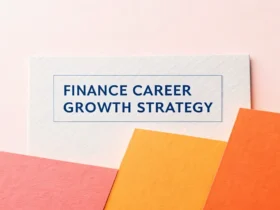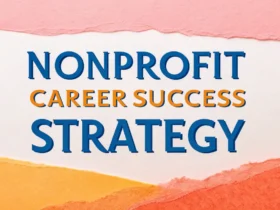Landing your dream job in consulting can feel like scaling Everest in flip-flops. The path seems shrouded in mystery, reserved for those “in the know.” But what if I told you that breaking into the consulting world is less about inherent genius and more about understanding the landscape?
This article isn’t a magic wand, but a compass. We’ll decode the consulting career, revealing the skills you need, the firms you should target, and the strategies you can use to stand out from the crowd. No fluff, no empty promises – just honest insights to help you chart your course.
Consulting Career Path Decoded
Consulting is a diverse field. It spans countless industries and specializations. It is where bright minds tackle complex problems for businesses and organizations. A consulting career, however, isn’t one-size-fits-all. You must be able to navigate a jungle of choices and paths. Let’s dissect what a “consulting career” truly entails.
What Exactly Is Consulting?
Consulting is providing expert advice to organizations to help them improve their performance. Consultants analyze problems, develop solutions, and assist with implementation. This might involve:
- Strategy: Helping companies define their long-term goals and how to achieve them.
- Operations: Improving efficiency and effectiveness of business processes.
- Technology: Implementing new technologies or optimizing existing ones.
- Human Capital: Optimizing organizational structure and talent management.
- Financial Advisory: Providing advice on financial matters such as mergers and acquisitions.
The common thread? Consultants are problem-solvers. They bring specialized knowledge and an objective perspective to organizations seeking guidance.
Types of Consulting Firms
The consulting world isn’t a monolith. It encompasses a spectrum of firms that vary in size, focus, and culture. Here are the main players:
- Management Consulting: These firms offer advice on a wide range of business issues, including strategy, operations, and organization. The “MBB” firms – McKinsey & Company, Boston Consulting Group (BCG), and Bain & Company – are the most prestigious in this category.
- Strategy Consulting: While often intertwined with management consulting, strategy consulting has a laser focus on high-level strategic decisions. They help companies determine which markets to enter, what products to develop, and how to compete effectively.
- Operations Consulting: These firms focus on improving a company’s operational efficiency. This could involve streamlining supply chains, optimizing manufacturing processes, or reducing costs.
- Technology Consulting: With the relentless pace of technological change, tech consultants are in high demand. They help businesses implement new software, manage cybersecurity risks, and leverage data analytics. Accenture, Deloitte, and IBM are major players here.
- Financial Advisory Consulting: This segment focuses on financial matters, including mergers and acquisitions (M&A), restructuring, and forensic accounting.
- Niche Consulting: A wide range of specialized firms exist that concentrate on specific industries (e.g., healthcare, energy) or functional areas (e.g., marketing, supply chain).
The type of consulting firm you target will significantly shape your career path. Each offers distinct opportunities, challenges, and cultures.
The Consulting Hierarchy: Climbing the Ladder
Most consulting firms have a defined hierarchy, and understanding it will give you insight into your potential career trajectory:
- Analyst/Associate: The entry point. You’ll be involved in data gathering, research, and supporting the consulting team.
- Consultant: You’ll take on more responsibility, managing smaller project modules and interacting directly with clients.
- Senior Consultant/Manager: Leading project teams, managing client relationships, and contributing to business development.
- Principal/Partner: Overseeing multiple projects, driving business development, and shaping the firm’s strategic direction.
Progression through the ranks depends on your performance, contributions to the firm, and ability to generate new business. It’s a meritocratic system, but one that demands consistent effort and a commitment to excellence.
Skills You Need to Thrive
A sharp intellect is a given, but consulting demands a specific mix of skills:
- Analytical Skills: The ability to dissect complex problems, identify key issues, and develop data-driven solutions.
- Problem-Solving: Creativity and resourcefulness in tackling challenges and finding innovative solutions.
- Communication Skills: Clear and concise communication is vital, both verbally and in writing. You must be able to present your findings and recommendations persuasively.
- Interpersonal Skills: Building rapport with clients, working effectively in teams, and navigating complex organizational dynamics.
- Business Acumen: Understanding business principles and how different functions within an organization interact.
- Quantitative Skills: Comfort with numbers, statistical analysis, and financial modeling.
- Adaptability: The ability to thrive in fast-paced environments and adapt to new challenges and industries.
These skills aren’t innate. They’re honed through education, experience, and a dedication to continuous learning.
Preparing for a Consulting Career
Breaking into consulting is competitive, but with preparation and strategy, you can increase your odds of success.
Education: The Foundation
While there’s no single “consulting degree,” certain educational backgrounds are favored:
- Business Degrees: MBA, Master’s in Management, or related business-focused programs. These provide a strong foundation in business principles and analytical skills.
- Economics Degrees: Strong analytical and quantitative skills are highly valued.
- Engineering Degrees: Problem-solving skills and a structured approach to analysis are attractive to consulting firms.
- STEM Degrees: Science, Technology, Engineering, and Mathematics degrees offer a rigorous analytical framework that translates well to consulting.
A strong GPA and relevant coursework are important, but don’t underestimate the value of extracurricular activities and leadership experience.
Gaining Relevant Experience
Real-world experience complements your education and showcases your abilities:
- Internships: Consulting internships are highly coveted and provide invaluable exposure to the industry.
- Case Competitions: These simulate real consulting projects and allow you to showcase your problem-solving skills.
- Leadership Roles: Demonstrating leadership in student organizations or volunteer activities highlights your interpersonal and management skills.
- Projects: Undertaking projects that require analytical thinking and problem-solving, whether academic or personal, can provide tangible evidence of your capabilities.
Seek opportunities to develop your skills and build your resume. Each experience, however small, contributes to your overall profile.
Networking: Building Connections
Networking is vital for getting your foot in the door:
- Career Fairs: Attend career fairs at your university and target consulting firms that are recruiting.
- Information Sessions: Consulting firms often host information sessions to introduce their company and culture to potential applicants.
- LinkedIn: Connect with consultants at firms you’re interested in. Engage with their content and politely request informational interviews.
- Alumni Networks: Leverage your university’s alumni network to connect with consultants who have graduated from your program.
Networking isn’t just about collecting contacts. It’s about building genuine relationships and learning from those who have walked the path before you.
Mastering the Case Interview
The case interview is a staple of the consulting recruitment process. It assesses your analytical skills, problem-solving abilities, and communication skills:
- Practice, Practice, Practice: Practice solving case studies from various sources. The more you practice, the more comfortable you’ll become with the format and the different types of cases.
- Structure Your Approach: Develop a structured approach to problem-solving. Break down the case into smaller components, identify key issues, and develop hypotheses.
- Communicate Clearly: Explain your thinking process clearly and concisely. Don’t just provide answers, explain how you arrived at them.
- Ask Clarifying Questions: Don’t be afraid to ask clarifying questions to gather more information and refine your understanding of the problem.
- Listen Actively: Pay close attention to the interviewer’s feedback and adapt your approach accordingly.
Resources for case interview preparation:
- Case in Point by Marc Cosentino: A comprehensive guide to case interview preparation.
- Victor Cheng’s Look Over My Shoulder® program: Provides real case interview simulations.
- Consulting Club at your university: Offers workshops, practice cases, and networking opportunities.
Case interviews are challenging, but with focused preparation, you can demonstrate your potential as a consultant.
Navigating the Application Process
The consulting application process is rigorous. Here’s how to make your application stand out:
Resume Optimization: Telling Your Story
Your resume is your first impression. Make it count:
- Highlight Relevant Skills: Emphasize skills that are relevant to consulting, such as analytical skills, problem-solving abilities, and communication skills.
- Quantify Your Achievements: Use numbers to quantify your achievements and demonstrate your impact. Instead of saying “Improved efficiency,” say “Improved efficiency by 15%.”
- Tailor Your Resume: Customize your resume for each firm you’re applying to. Highlight experiences and skills that are particularly relevant to their focus and culture.
- Use Action Verbs: Start each bullet point with a strong action verb to showcase your accomplishments.
Keep your resume concise and easy to read. Recruiters often spend only a few seconds reviewing each application.
Cover Letter: Making a Connection
The cover letter is your opportunity to express your interest in consulting and showcase your personality:
- Show Enthusiasm: Clearly state why you’re interested in consulting and why you’re a good fit for the specific firm.
- Highlight Relevant Experiences: Connect your experiences and skills to the requirements of the consulting role.
- Demonstrate Knowledge: Show that you’ve researched the firm and understand its values, culture, and areas of expertise.
- Keep It Concise: Keep your cover letter to one page and focus on the most important information.
Your cover letter should complement your resume and provide a compelling narrative for why you should be considered for the role.
Online Assessments: Demonstrating Aptitude
Some firms use online assessments to screen candidates. These may include:
- Aptitude Tests: Assessing your numerical reasoning, verbal reasoning, and logical reasoning skills.
- Personality Tests: Evaluating your personality traits and cultural fit with the firm.
- Situational Judgement Tests: Presenting you with realistic scenarios and asking you to choose the best course of action.
Prepare for these assessments by practicing sample questions and familiarizing yourself with the format. Treat them seriously, as they can significantly impact your chances of moving forward in the application process.
Life as a Consultant: Beyond the Glamour
Consulting can be rewarding, but it’s important to be realistic about the lifestyle:
The Demands of the Job
- Long Hours: Consultants often work long hours, particularly during peak project periods.
- Travel: Frequent travel is common, as consultants often work on-site with clients.
- High Pressure: Consultants are expected to deliver results and meet tight deadlines, which can be stressful.
- Constant Learning: The consulting landscape is constantly evolving, requiring consultants to continuously learn and adapt.
The demands of consulting can be challenging, but they also provide opportunities for rapid growth and development.
The Rewards of the Profession
- Intellectual Stimulation: Consulting offers intellectual stimulation and the opportunity to tackle complex problems.
- Diverse Experiences: Consultants work on a variety of projects across different industries, providing diverse experiences and exposure.
- Professional Development: Consulting firms invest heavily in training and development, providing opportunities for consultants to enhance their skills and knowledge.
- High Earning Potential: Consulting offers high earning potential, particularly at the senior levels.
- Networking Opportunities: Consultants build a strong network of contacts across various industries, which can be valuable for future career opportunities.
The rewards of consulting can be significant, but they come with a commitment to hard work and a willingness to embrace challenges.
Maintaining Work-Life Balance
Maintaining work-life balance can be difficult in consulting, but it’s important for long-term well-being:
- Set Boundaries: Establish clear boundaries between work and personal life.
- Prioritize Self-Care: Make time for activities that help you relax and recharge, such as exercise, meditation, or spending time with loved ones.
- Communicate with Your Team: Communicate your needs and limitations to your team and manager.
- Utilize Firm Resources: Take advantage of resources offered by your firm, such as employee assistance programs or wellness initiatives.
Prioritizing work-life balance is not a sign of weakness. It is a sign of strength and a commitment to your long-term success and well-being.
Specializations and Emerging Trends
The consulting field is constantly evolving. Staying ahead of the curve is critical.
Areas of High Demand
- Digital Transformation: Helping companies adapt to the digital age by implementing new technologies and strategies.
- Data Analytics: Leveraging data to gain insights and make better business decisions.
- Cybersecurity: Protecting organizations from cyber threats and ensuring data privacy.
- Sustainability: Helping companies reduce their environmental impact and operate more sustainably.
- Healthcare Consulting: Navigating the complexities of the healthcare industry and improving patient outcomes.
These areas offer strong growth potential for consultants. Align your skills and interests with these trends to maximize your career opportunities.
The Rise of Boutique Consulting Firms
Boutique consulting firms offer specialized expertise in niche areas:
- Focus: They typically focus on a specific industry or functional area, allowing them to develop deep expertise.
- Agility: Boutique firms are often more agile and responsive than larger firms.
- Culture: They often have a more collaborative and entrepreneurial culture.
Boutique firms can provide unique opportunities for consultants who are passionate about a specific area and want to work in a smaller, more intimate environment.
The Impact of AI on Consulting
Artificial intelligence (AI) is transforming the consulting industry:
- Automation: AI is automating routine tasks, freeing up consultants to focus on more strategic work.
- Data Analysis: AI is enabling consultants to analyze large datasets more quickly and efficiently.
- Insights: AI is providing new insights and recommendations based on data analysis.
Consultants who embrace AI and develop skills in this area will be in high demand.
Is Consulting Right for You? Self-Assessment
Consulting isn’t for everyone. A honest self-assessment is a must before embarking on this path.
Key Considerations
- Do you enjoy problem-solving? If you like to find the root of complex problems, then you may want to become a consultant.
- Are you comfortable with ambiguity? Consulting deals with many complex problems, so you need to embrace ambiguity.
- Do you thrive in fast-paced environments? Then consulting is for you, since it evolves at an extremely fast pace.
- Are you a strong communicator? If you can express your ideas clearly and efficiently, consulting may be the place for you.
- Are you willing to work long hours? If you are not ready to sacrifice your personal time for your job, it may not be the field for you.
Consider what will benefit and hinder you from being an effective consultant.
Aligning Your Values
- Impact: Do you want to make a difference in the world?
- Growth: Do you value continuous learning and professional development?
- Challenge: Do you seek intellectual challenges and opportunities to push yourself?
- Collaboration: Do you enjoy working in teams and collaborating with others?
- Compensation: Are you motivated by high earning potential?
Make sure your personal and professional values align before committing to this.
Alternatives to Consulting
If consulting isn’t the right fit, explore related career paths:
- Corporate Strategy: Working within a company to develop and implement strategic initiatives.
- Business Analytics: Using data to analyze business performance and identify areas for improvement.
- Project Management: Managing projects and ensuring they are completed on time and within budget.
- Entrepreneurship: Starting your own business and tackling business challenges firsthand.
These paths leverage similar skills to consulting but may offer different work-life balance or career trajectory.
Making Your Final Decision
The decision to pursue a consulting career is an important one. Consider your goals and values before making your choice.
Weighing the Pros and Cons
List out the benefits and drawbacks of consulting based on your own expectations.
- List the Pros: List the advantages of consulting and how they benefit your professional career.
- List the Cons: List the disadvantages of consulting and determine whether or not you can realistically deal with the workload.
Be honest with yourself.
Seeking Mentorship and Advice
Talk to current or former consultants to get their insights and advice.
- Ask for their guidance. Consultants can act as mentors for how to approach your career.
- Ask for their opinions. Consultants can give insights and potential solutions to your current problems.
- Ask for their support. Consultants can act as cheerleaders for your potential successes.
Be receptive to their advice.
Trusting Your Gut
Ultimately, the decision is yours. Trust your intuition and choose the path that feels right for you.
- Set a schedule. Take a week to ponder over the choice, and make sure you don’t rush into it without proper planning.
- Decide. Trust your gut and commit.
- Plan ahead. Plan your steps for how to execute your future career, and don’t procrastinate.
Committing to the right path will make sure you’re ready to give it your all.
Building a Consulting Skillset
Building a consulting skillset is essential for beginners in the field. With the right tools, you can improve your effectiveness.
Essential Resources
- Online Courses: Platforms like Coursera, Udemy, and LinkedIn Learning offer courses on consulting skills, such as problem-solving, data analysis, and communication.
- Books: Read books on consulting frameworks, case interview preparation, and business strategy.
- Blogs and Articles: Stay up-to-date on industry trends and best practices by reading blogs and articles from reputable consulting firms and industry experts.
- Networking Events: Attend networking events to connect with consultants and learn about their experiences and insights.
Leverage these resources to continuously enhance your knowledge and skills.
Practicing and Applying Skills
- Simulate Consulting Projects: Take on small projects or volunteer opportunities that allow you to apply your consulting skills.
- Seek Feedback: Ask for feedback on your work from mentors, peers, or supervisors.
- Reflect on Your Experiences: Take time to reflect on your experiences and identify areas where you can improve.
- Seek Mentorship: Find someone who can help guide you through the challenges you will face.
Continuous practice and application are essential for developing a strong consulting skillset.
Certifications and Further Education
- Project Management Professional (PMP): Demonstrates your expertise in project management.
- Certified Management Consultant (CMC): A professional certification for management consultants.
- Six Sigma Certification: Demonstrates your expertise in process improvement.
- Specialized Master’s Degrees: Consider pursuing a specialized master’s degree in a specific area of consulting, such as data analytics or cybersecurity.
Certifications and further education can enhance your credibility and demonstrate your commitment to professional development.
Resources for Aspiring Consultants
There are many resources to help you prepare for a consulting career. Make sure to take advantage of the tools at your disposal.
Websites and Online Communities
- Vault.com: Provides rankings and reviews of consulting firms, as well as career advice and resources.
- Glassdoor.com: Offers company reviews, salary data, and interview insights.
- LinkedIn Groups: Join LinkedIn groups for consultants to connect with others in the industry and share insights and resources.
- Reddit: Explore subreddits dedicated to consulting, where you can ask questions and get advice from experienced consultants.
These platforms provide valuable information and networking opportunities for aspiring consultants.
Networking Events and Conferences
- Consulting Club Events: Attend events hosted by consulting clubs at universities.
- Industry Conferences: Attend industry conferences to learn about the latest trends and network with professionals in the field.
- Firm-Sponsored Events: Attend events hosted by consulting firms to learn about their company culture and recruitment process.
These events provide opportunities to connect with consultants and learn about the industry firsthand.
Mentorship Programs and Career Counseling
- University Career Services: Utilize career services offered by your university to get resume reviews, mock interviews, and career counseling.
- Professional Mentorship Programs: Participate in mentorship programs that connect you with experienced consultants.
- Online Mentorship Platforms: Explore online platforms that connect you with mentors in the consulting industry.
Mentorship and career counseling can provide valuable guidance and support as you navigate the consulting career path.
A Career of Impact
A consulting career is not merely a job. It’s a pathway to creating tangible impact on businesses and the world.
The Potential for Positive Change
- Solving Complex Problems: Contributing to the success of organizations.
- Improving Efficiency: Implementing new projects that impact various markets.
- Driving Innovation: Creating change in organizations and beyond.
- Impacting Lives: Making a difference in the lives of patients and the community.
Many want to find a path where they can create change for the better. Consulting may be it.
Developing Leadership Skills
- Leading Teams: Managing consultants and clients.
- Making Strategic Decisions: Determining the future of companies and projects.
- Influencing Stakeholders: Making a difference in companies and markets.
- Building Relationships: Networking with consultants and clients.
Building effective leadership skills is essential for being a successful consultant.
Shaping the Future
- Contributing to Economic Growth: Creating future solutions that benefit society.
- Promoting Sustainable Practices: Developing projects that solve ecological concerns.
- Driving Innovation: Creating initiatives that evolve businesses and society.
- Making a Difference: Impacting the world for the better.
Those in consulting roles often create initiatives that benefit businesses and society.
Should You Get into Consulting?
Consulting is a career path that attracts many, but it’s also a path that involves sacrifice. There is no clear answer as to whether you should embark on this career path.
Is It Worth It?
Consulting can be worth it, but it must align with your goals. With the right approach, you can create initiatives that have a positive impact.
- Impact: It’s an effective method of creating change in society for the better.
- Growth: There is massive potential for your own personal development.
- Challenge: You get an evolving career path, but the challenges may be stressful.
- Collaboration: You get to work with a broad community of specialists to solve major problems.
- Compensation: The high compensation comes with a heavy price to pay for your personal life.
This list offers a simplified view of whether or not you should take the consulting career path. In the end, it is up to you.
The consulting career path isn’t a gilded road paved with effortless success. It’s a challenging, demanding, and often unpredictable journey. However, it is a journey filled with opportunity, growth, and the potential to make a real difference. By understanding the landscape, cultivating the necessary skills, and approaching the application process strategically, you can increase your chances of landing your dream job. The consulting world awaits those who are prepared to embrace the challenge and embark on a career of impact.















Leave a Reply
View Comments